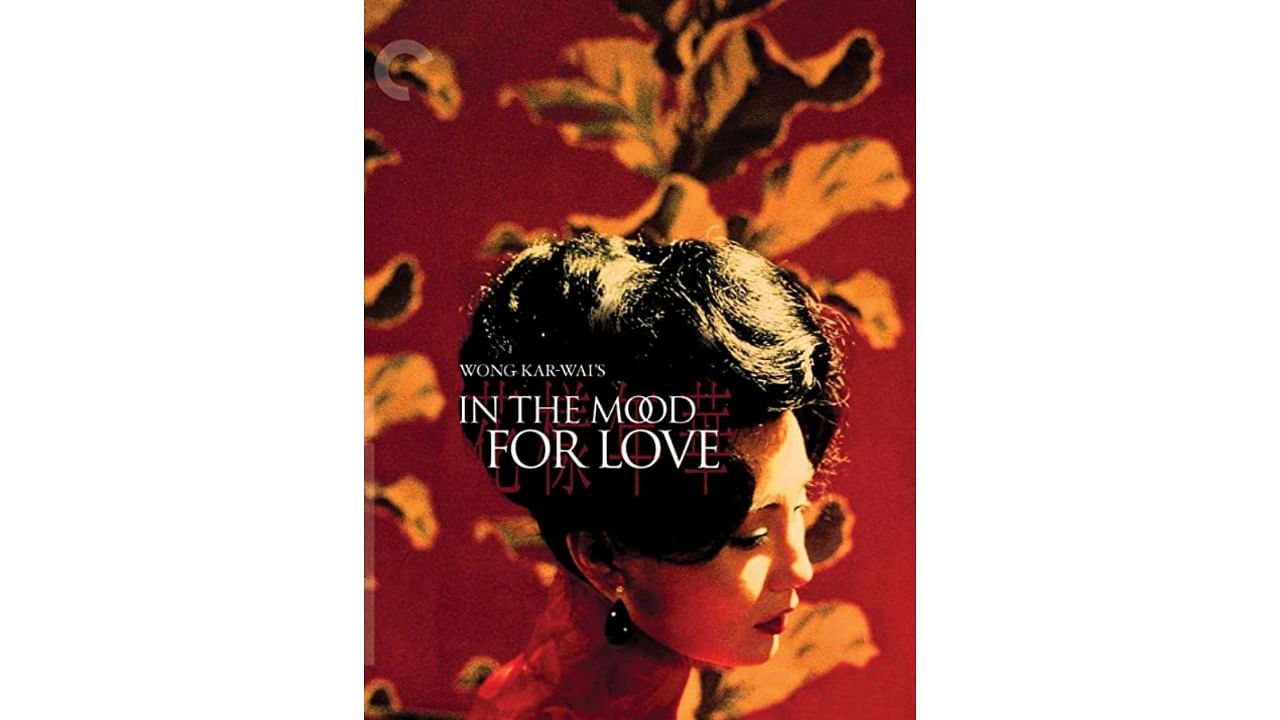
The mantra behind the magic of Wong Kar-wai films such as In the Mood for Love and Chungking Express? Experimentation, says cinematographer Christopher Doyle who teamed up with the director to create a series of global classics.
According to Doyle, famous for his colour-saturated images in cinema, most of what the critics call their 'style' happened because both were open to experimenting.
He even has a term for it: 'Wong Kar-wai attitude'.
Quoting jazz musician Miles Davis, he told PTI, "There are no mistakes, only possibilities... And others have said things like - 'make your own mistakes, not others'. If you don’t dare to fail you won’t have the guts (and b***s and all the rest) to make great work.”
"Our so called 'style' comes more out of the 'I may not know what I want, but I do know what I don’t want' Wong Kar-Wai attitude," he added in an email interview.
The cinematographer, who has lensed some of world cinema’s most loved films, said he is as surprised as anyone else to have found his calling in filmmaking. He dismisses adjectives of greatness, preferring the more ambiguous "only one of... not the greatest", saying, "If one takes oneself too seriously, one is likely to be cast in stone."
Doyle also expresses a fondness for "words, complex ideas, faces and spaces".
"I am as surprised as anyone that somehow making films is true to who I am; focused but eclectic, needing to share, responsive to spaces and environments, intrigued by the ups and downs, confidence and fears that all of us go through," he said in the interview, part of MUBI India's Wong Kar-wai's retrospective.
The cinematographer, 69, said he has always carried with him this "need to move, to dance" and find what's hidden behind words, images, ideas and faces.
"I love words and yet I know they are hiding so much…our purpose as filmmakers and that especially of actors is to reveal what is hidden. To give a face the light it needs and deserves. To give the space and context to an idea that can’t otherwise be shared," he said.
Global distributor and curated film streaming service MUBI has released seven Wong Kar-wai films, including five restorations of past classics, 2046 (2004), Chungking Express (1994), Fallen Angels (1995), Happy Together (1997), and In the Mood for Love (2000).
Doyle, who is inseparable from Wong Kar-wai's filmography though they last worked together on 2046, is credited with introducing the world with a distinct visual style through director's films.
In his long career, the Australia-born lensman has worked with prominent directors such as Patrick Tam, Sylvia Chang, Chen Kaige, Gus Van Sant and James Ivory, but it is his collaboration with Wong Kar-wai that has made him a part of cinema history.
Their collaboration began with 1991 film Days of Being Wild and they worked through films such as Ashes of Time, Fallen Angels, Happy Together and the Hong Kong-director's 2004 movie 2046, a spiritual sequel to his most celebrated "In the Mood for Love", a languidly shot story of unrequited love between two neighbours who discover that their spouses are cheating on them.
The cinematographer's life has been an unusual one, almost like the plot of a very dramatic film. Born in Sydney, Doyle left his country on a merchant ship at the age of 18 and travelled to different countries doing odd jobs.
He landed in Taiwan in the 1970s and took an interest in Chinese culture, learnt Mandarin and started working as a photographer. Some years later, he made his debut as a cinematographer with director Edward Yang's 1984 film That Day, on the Beach.
At the moment, Doyle said he is looking for new inspiration to strike him while he keeps himself busy with writing and swimming.
"I am a lonely artist waiting for his muse (just in case any are reading this ). In the meantime (and in muse-less space that I find myself) mostly I write and collage and swim a lot."
The pandemic has affected his need to "move to feel alive" as it has put a pause to sharing "energies and exchanging ideas", he said.
"Zoom and Skype are not the same as touch and feel. Of course, you could say it ‘centers’ us more. We have to come face to face with self and accept how we are and perhaps even learn a bit about ourselves that we wouldn’t have otherwise. That I feel is the most positive side of what we are going through."
Asked whether he ever thought about his life or how it can be a film in itself, Doyel again quoted Bob Dylan: "those who are not busy living are busy dying".